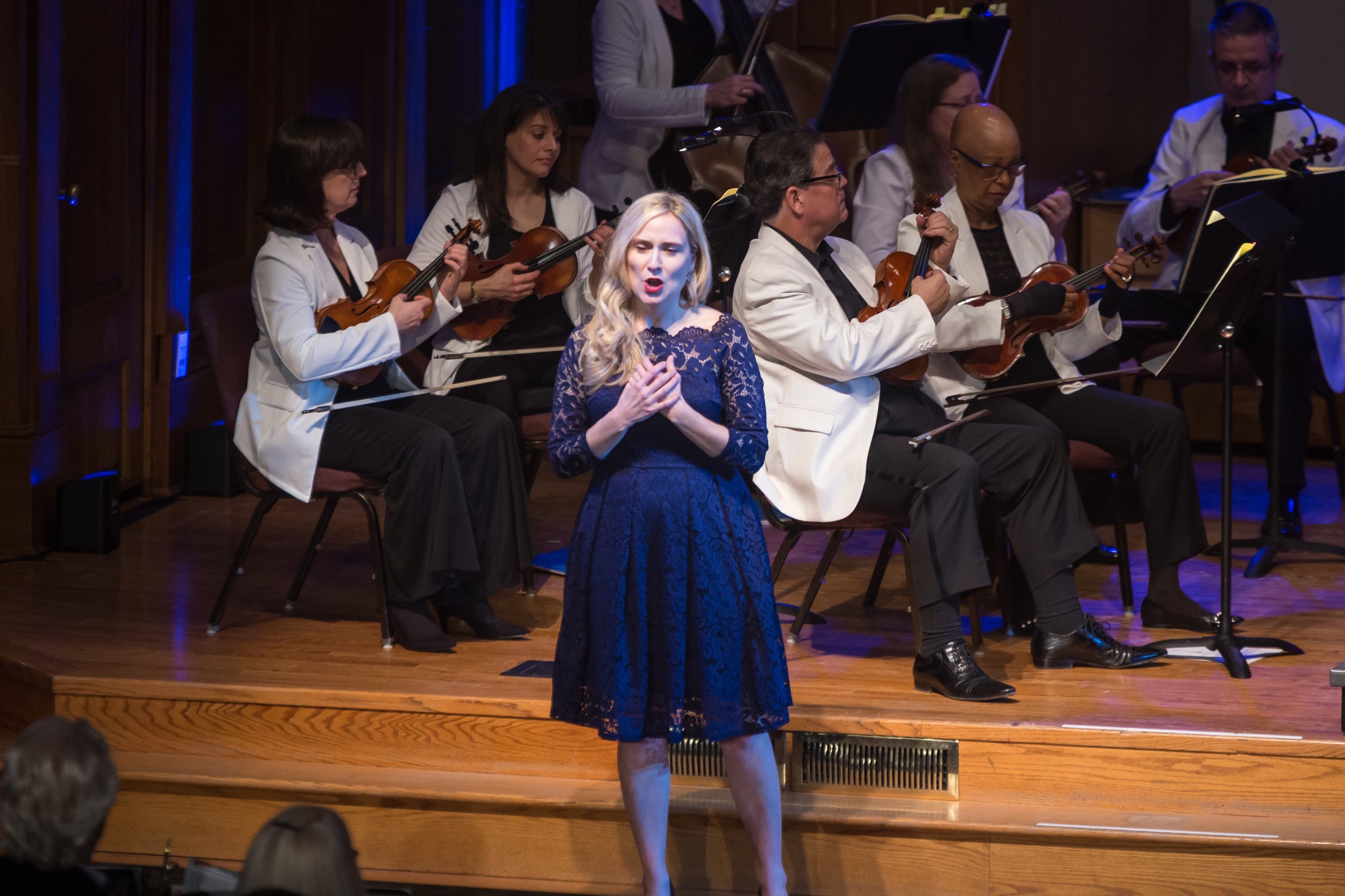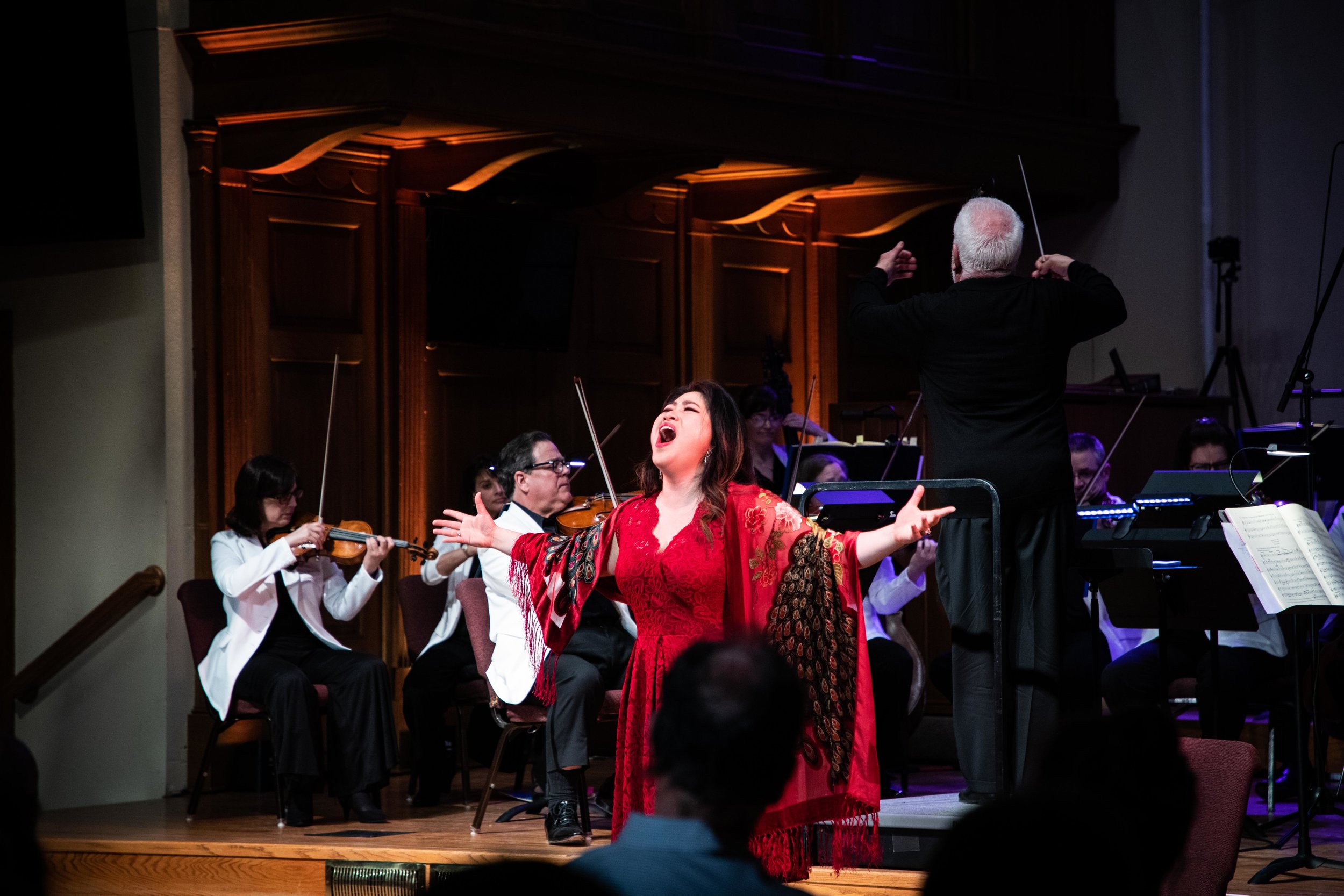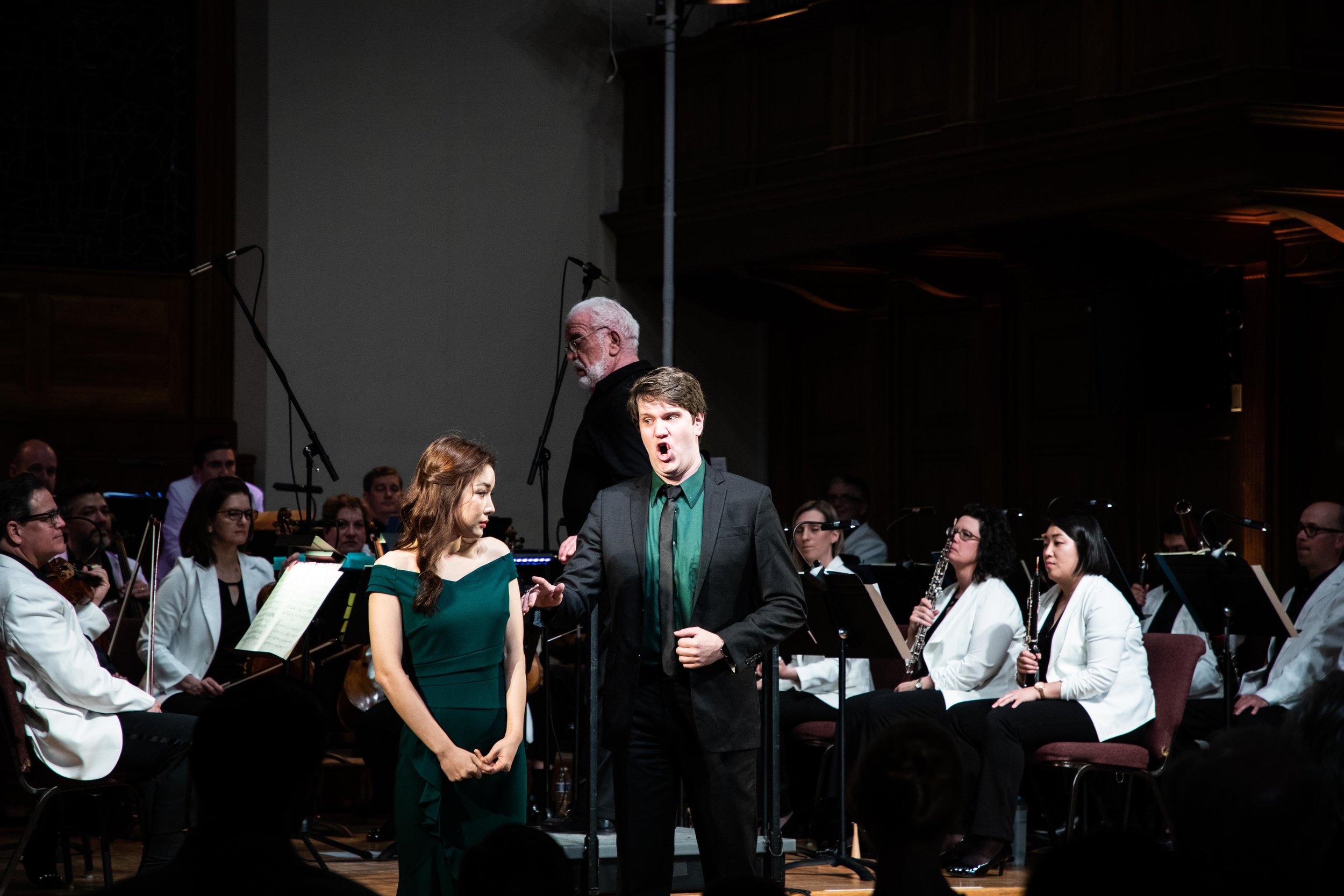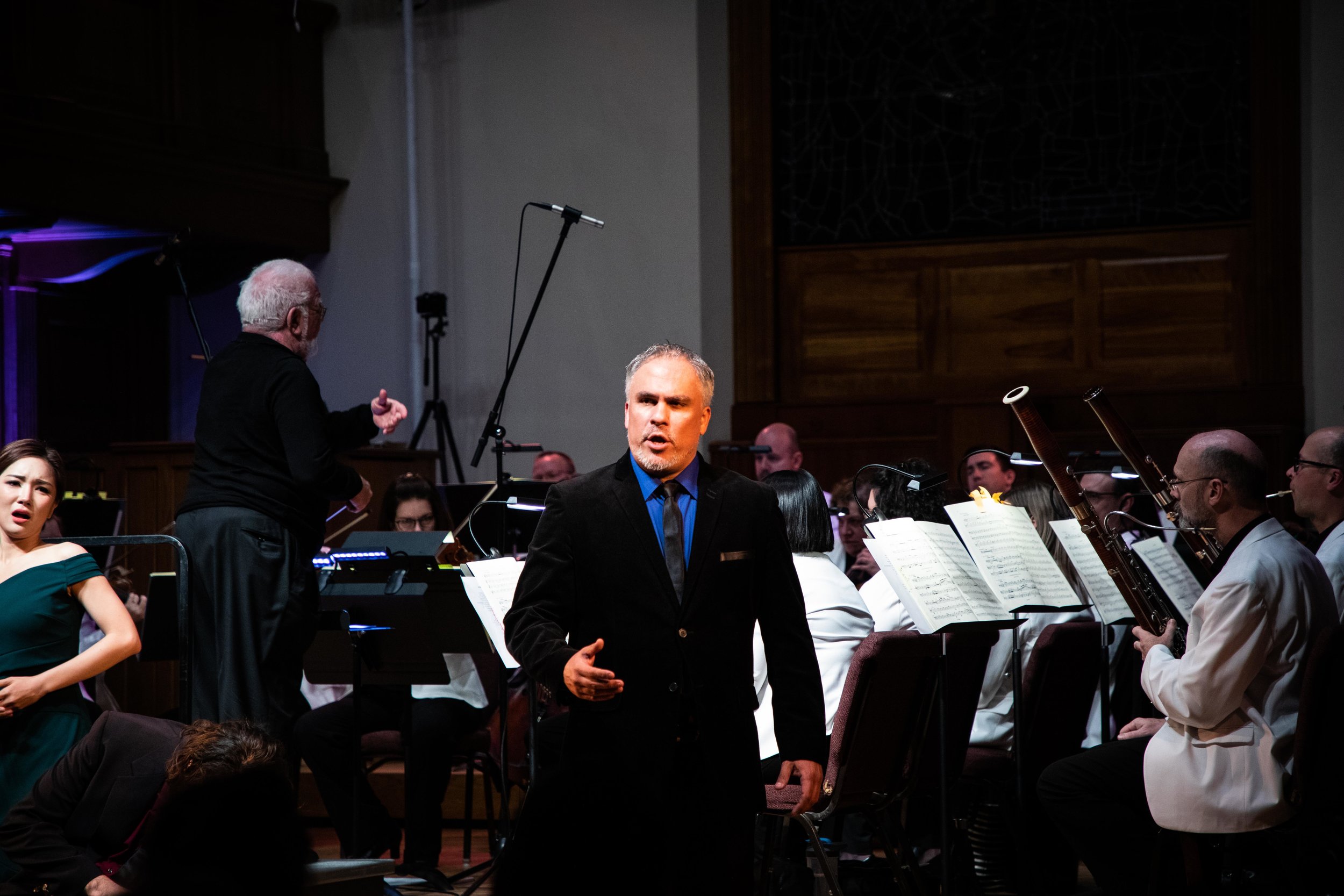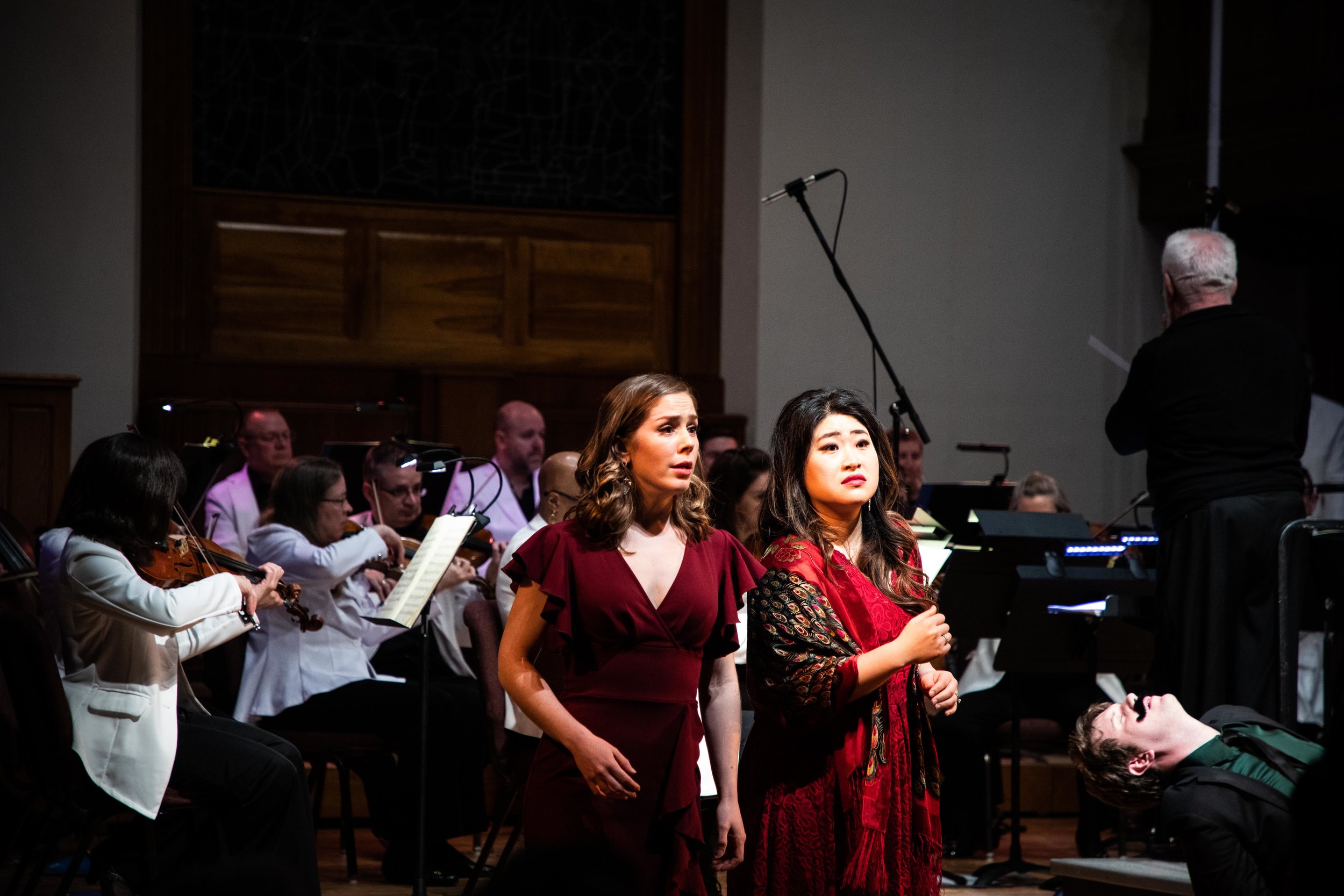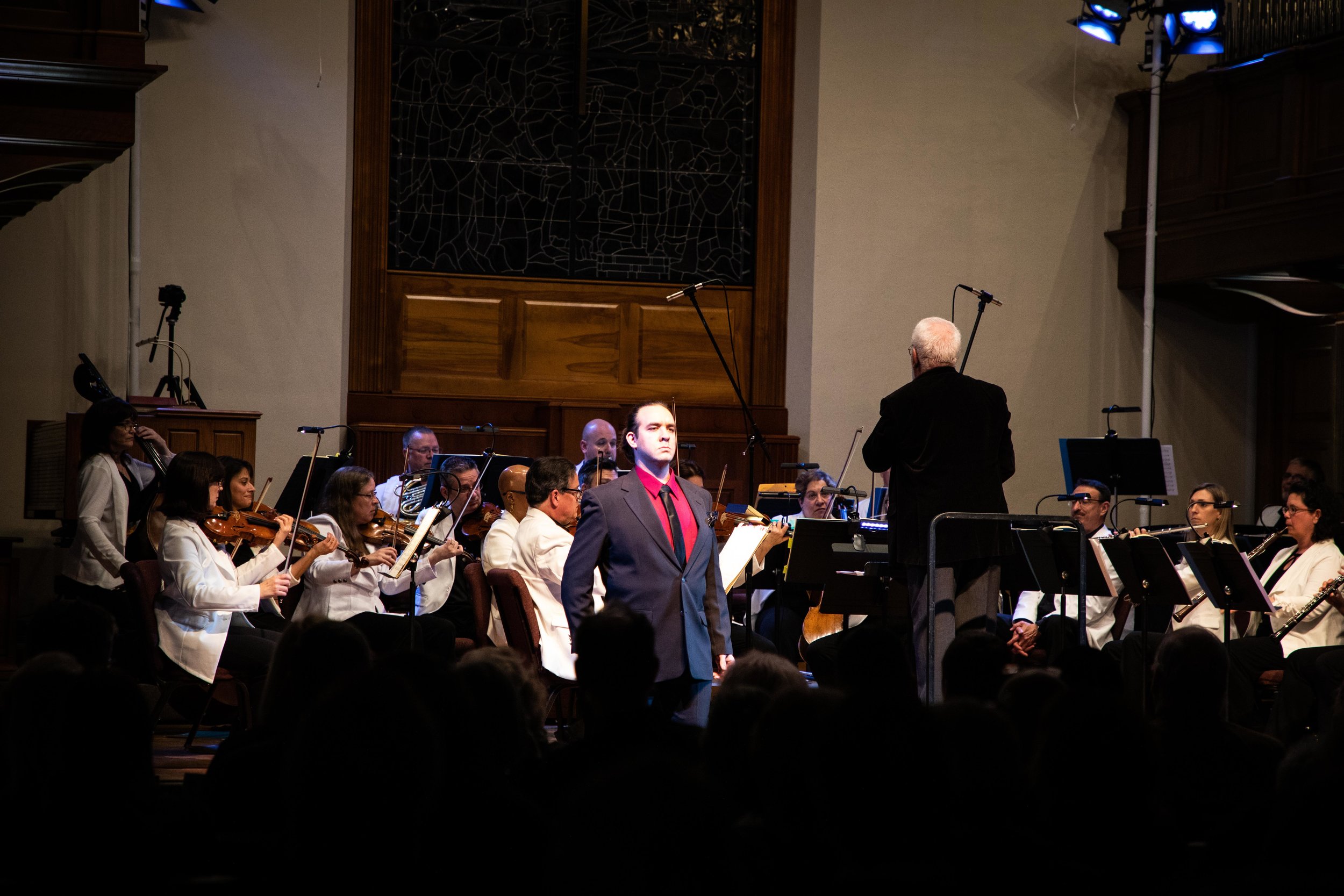Magically, you are transported back to December 5, 1801. Mayor of Vienna Josef Georg Hörl has invited you to a church concert in honor of the tenth anniversary of the death of Wolfgang Amadeus Mozart. You are grateful for the opportunity to attend a concert. You are weary from local political battles and the wars plaguing Europe, and there is a new threat from the rise of Napoleon Bonaparte in Paris. You need this respite, a chance to enjoy the glorious music of this great composer. Excerpts from three of his operas, all written in the last five years of his life, with librettos by that rascal Lorenzo Da Ponte are to be performed by seven rising opera stars, accompanied by a small orchestra of Vienna’s best players. And importantly, it’s a chance for everyone to come together and be of one mind for this one evening when civility will reign as Mr. Mozart and Mr. Da Ponte provide lessons on the nature of love.
That could have been you on Friday night or on Saturday night, in spirit if not in fact, at the Maryland Lyric Opera Institute’s concert, “An Evening of Mozart” performed at Bethesda United Methodist Church - except for that part about the mayor of Vienna. If you imagine that the performers were in 18th century garb, this is how opera might have been in Vienna two-hundred years ago. That is how I experienced it from the moment that Maestro Louis Salemno, with short white hair and beard, dressed in black shirt and trousers, strode to the podium and with gravelly voice began to set the stage for the audience as to what was taking place in the scenes from The Marriage of Figaro, Don Giovanni, and Cosi fan tutte that we were to witness.
left: Soprano Mary Feminear. right: Soprano Youna Hartgraves. Photos by Sam Trotman; courtesy of Maryland Lyric Opera.
Individually, in pairs, and in groups, seven singers stepped up to demonstrate new mastery of their craft gained through recent intensive training with the MDLO Institute. These singers are already accomplished artists with degrees, honors in competitions, and a performance record under their belts, but intent on rising to yet a higher level of competence in what I call the struggle for beauty. Entertaining us and sharing the beauty of their voices and singing were bass-baritone Adam Cioffari, soprano Mary Feminear, tenor Joseph Michael Brent, soprano Nanyoung Song, mezzo-soprano Caroline Hewitt, baritone José Sacin, and soprano Youna Hartgraves. I am a lover of voices, and I can tell you now - all of these are keepers.
left: Soprano Nanyoung Song and bass-baritone Adam Cioffari. right: Baritone José Sacin. Photos by Sam Trotman; courtesy of Maryland Lyric Opera.
First up were excerpts from The Marriage of Figaro beginning with Adam Cioffari as Figaro. With his shining baritone laced with anger, he delivered the message that the Count has picked the wrong man’s wife to dally with. Next, mezzo-soprano Caroline Hewitt sang Cherubino’s love aria, simply and beautifully, perhaps only needing a little more confidence to bring Cherubino’s character more to the front. One of the dramatic highlights of the evening was soprano Youna Hartgraves as the Countess singing the aria mourning the loss of sweetness and pleasure once provided by her unfaithful husband, expressing both pain and jealousy. Let me amend that; it was sung by Assistant Professor, Dr. Youna J. Hartgraves – I told you these singers were already accomplished. José Sacin, a singer in mid-career, who has performed with Washington National Opera and houses across Europe sang as the Count of his unrequited passion for Susanna with a clear, strong baritone voice. A thrilling dramatic moment for the audience was a duet by Ms. Hartgraves as the Countess and soprano Mary Feminear as Susanna, singing “Che soave zeffiretto”. If you saw the Shawshank Redemption, this was the aria played over the prison loudspeakers that caused all the prisoners to pause and listen, while Morgan Freeman added in voiceover that those ladies were singing something too beautiful to be expressed in words. Indeed, their voices were beautiful individually, but entwined, they were rapturous. Not only that – they strolled partway down the center aisle while singing to within a few feet of me; being so close to the singers will definitely immerse you in the experience!
left: Mezzo-soprano Caroline Hewitt and soprano Youna Hartgraves. right: tenor Joseph Michael Brent. Photos by Sam Trotman; courtesy of Maryland Lyric Opera.
Tenor Joseph Michael Brent (who also holds a doctoral degree) and soprano Nanyoung Song made their appearances in the Don Giovanni excerpts. Mr. Brent delivered Don Ottavio’s aria of adoration of Donna Anna with sonorous brilliance. I though Mr. Brent was good when first I heard him a year ago. He is now even better, a career worth following. Kudos to him and to the MDLO team. Ms. Song was featured as Zerlina in a delightful duet with Mr. Ciofarri as Giovanni in what might be called the seduction aria. This section ended with a stirring singing of Mozart’s brilliant Giovanni sextet, “sola sola in buio loco” that clearly was an audience favorite. As well as excellent singing, the group hammed it up a bit with the excerpts from Cosi fan tutte, and they were fun. In all, I am unable to name one aria or performance during the evening that I did not really enjoy, due both to the selection of excerpts and these amazing artists.
A comedic moment of Cosi fan tutte; soprano Nanyoung Song as Despina in disguise holds the magic cure for the passed out boys and, Conductor Louis Salemno holds the baton in the background. Photo by Sam Trotman; courtesy of Maryland Lyric Opera.
Well, what about the music? From the opening chords of the overture of Figaro, I wanted to take the MDLO Orchestra home with me. The overture was thrilling, and Maestro Salemno taught me another lesson; see my comments on MDLO’s La Fanciulla del West for the first. I have wailed about how opera houses need larger orchestras and need to get them out of the pit so we get the full impact of the music. There is another option – put the orchestra you have in a smaller concert hall. The twenty-five players dressed in white jackets under Salemno’s direction provided plenty of sound. Playing your stereo at home this loud would result in visits from irate neighbors. Honestly, a seventy-piece orchestra in the pit of the large opera houses provides no better quality sound. But, it wasn’t just the wonderful volume – the playing was wonderful and the sound was simply beautiful. Kudos to Conductor Salemno and the MDLO orchestra. I could imagine Mozart smiling down from heaven, tapping his fingers. What a marvelous opportunity for the MDLO Institute artists to perform with such great support.
I often muse about how it might have been to hear Mozart’s or Rosssini’s or Verdi’s music in their day when there were no recordings, videos, or music streaming services. Attending an MDLO Institute concert is as close as it comes to experiencing opera as it might have been, close enough that I will add this one to my list of transcendent experiences. In Mozart’s day, all music was live. Folks, there still is live music today, at least for the present, and the future if we support it. Come, join your neighbors; leave the world’s troubles behind and experience an evening of beauty and civility.
“Culture – the way we express ourselves and understand each other – can bind us together as one world.” Yo Yo Ma
The Fan Experience: “An Evening of Mozart” was only performed twice, Friday and Saturday evenings. A reception was held following the performances with pastries, coffee, and tea provided and the chance to mingle with the singers, orchestra members, and MDLO staff.
Want to be transported to nineteenth century Italy? You can do so in College Park. MDLO has scheduled two more “Evening” events this season to feature MDLO Institute artists: “An Evening of Verdi:, May 18 and 19; and “An Evening of Puccini” on June 7 and 9. The “Evening” events on May 19 and June 9 will be matinees. Both will be held at The Clarice Smith Performing Arts Center Tickets are not yet available.

